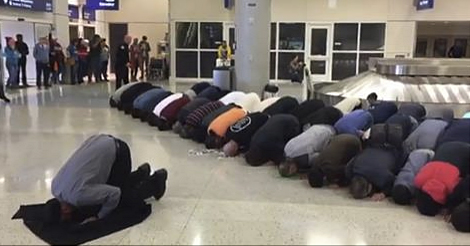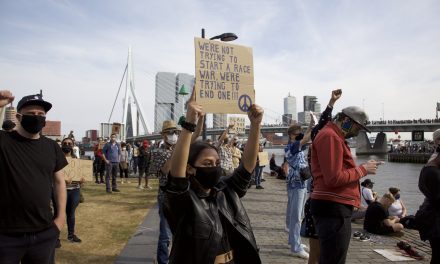This past Monday President Donald Trump signed an executive order temporarily halting the issuing of visas to immigrants and refugees from six Muslim-majority nations, and the order will go into on March 16. The executive order replaces an earlier one signed on January 27. This earlier order created confusion at airports across the United States as passengers were detained and questioned for hours by Customs and Border Protection (CBP) agents and others were placed on flights back to the countries they came from, often with no idea where they would stay or what they would do upon arrival. Others were prevented from boarding their flights in their countries of departure, never even stepping foot in the United States. By January 28 large, spontaneous protests began taking place at a number of airports, and teams of lawyers working pro bono set up shop to help arriving passengers and their family members. Several courts took up legal challenges to the executive order and the behavior of CBP agents, eventually forcing the Department of Homeland Security (DHS) to end enforcement of the executive order.
Despite Stephen Miller’s claim that the new order would have “the same basic policy outcome for the country” as the old, there are some important differences. Perhaps most importantly, the new executive order exempts current green card holders and visa holders, instead putting a halt to the issuance of new visas to citizens of the identified countries. Since it was the detention of people with valid visas who had jobs and family in the United States that generated much of the outrage surrounding the first order, this change is significant. The new executive order also removes Iraq from the list of affected countries, in part because the previous order prevented interpreters who had worked with the U.S. military from coming to the United States, and in part because the Iraqi government has supposedly improved the process for vetting visa applications.
The changes to the new executive order seem designed to address some of the legal challenges raised against the first order in the courts. Therefore, I think it has a significantly greater chance of standing up in court. One major question that remains, however, is whether the executive order is discriminatory on the basis of religion. All of the countries subject to immigration restrictions—Sudan, Somalia, Libya, Iran, Yemen, and Syria—are majority Muslim. As is well known, then candidate Trump at one point called for a “total and complete shutdown of Muslims entering the United States”, and the advisers closely linked to the executive order, Steve Bannon and Stephen Miller, have both expressed the view that Islam itself is a threat to American culture and therefore the number of Muslim immigrants to the United States ought to be reduced. The argument that the executive order is not a “Muslim ban” because it leaves the vast majority of the world’s Muslims free to come to the United States seems misguided to me. Was the Charleston massacre carried out by Dylann Roof not anti-black because he only killed nine African-Americans out of the more than 42 million living in the United States? What matters is not whether the executive order bars all Muslims from coming to the United States, but whether the intent is to exclude people based on their religion.
Therefore, the important question is whether there are valid national security concerns that could explain the choice of those six countries apart from the religious affiliation of their citizens. Certainly all but Iran suffer from significant violent conflicts, and the stated rationale for the executive orders is that this internal strife makes it difficult for these countries to verify the identities of people seeking entry to the United States. Yet this is not true of Iran, and perhaps more importantly, one could identify other countries throughout the world similarly racked by violence that are not included in the executive order, such as the Democratic Republic of the Congo, the Central African Republic, or even Colombia. Is there evidence that the countries listed in the executive order are any less capable of providing needed information about visa applicants than other countries? Secondly, recently leaked documents from the DHS’s own intelligence department show that even in the government’s own assessment, the travel ban is not a rational way of dealing with the security threats facing the United States. These reports show that nearly all radical Islamic terrorists who have carried out or planned attacks in the United States radicalized after arriving in the United States, meaning it is nearly impossible to determine through vetting who will eventually pose a threat and that limiting travel based on nationality is counterproductive.
Catholic ethics is clear that nations have the right and duty to regulate entry into their borders for the sake of national security and the common good. But these policies must truly serve the common good by respecting the dignity of every person, and they must be justified by real national security concerns. Using national security considerations as a pretext for religious discrimination when the government’s own intelligence estimates and national security experts alike agree that such policies are counterproductive cannot be justified. Catholic teaching also calls on us to respect members of the Muslim religion, both as believers in the God of Abraham and as fellow human beings in search of the sacred. As Catholics we cannot stand idly by as our Muslim brothers and sisters are scapegoated while more sensible measures that would actually improve our security are ignored.





